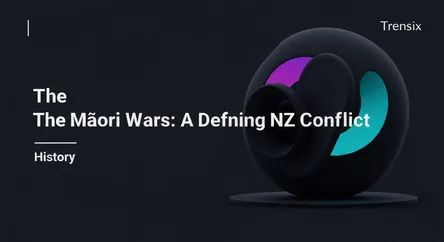History
The Māori Wars: A Defining NZ Conflict

An overview of the 19th-century Māori Wars in New Zealand, a series of conflicts over land and sovereignty that profoundly shaped the nation.
What is it?
The Māori Wars, also known as the New Zealand Wars, were a series of armed conflicts that took place in New Zealand between 1845 and 1872. The wars were fought between the colonial government, British Imperial forces, and their Māori allies (known as kūpapa) on one side, and various Māori iwi (tribes) on the other. The primary causes were escalating tensions over disputed land purchases and fundamental disagreements regarding sovereignty following the signing of the Treaty of Waitangi in 1840. These conflicts were not a single continuous war but a series of campaigns that occurred in different parts of the North Island, including Taranaki, Waikato, and the Bay of Plenty.
Why is it trending?
The Māori Wars are a subject of increasing national conversation in New Zealand, reflecting a growing desire to understand and acknowledge the country's colonial past. Recent years have seen significant developments, such as the establishment of a national day of commemoration, Rā Maumahara, to remember the wars. Furthermore, the legacy of the wars, particularly the large-scale confiscation of Māori land by the Crown, is central to the ongoing Treaty of Waitangi claims and settlement process. These discussions are prominent in media, politics, and education as New Zealand grapples with issues of reconciliation and national identity.
How does it affect people?
The impact of the Māori Wars continues to affect New Zealanders today. For Māori, the conflicts resulted in significant loss of life, the devastating confiscation of millions of acres of ancestral land, and the disruption of their society and economy. This historical trauma and dispossession are linked to contemporary social and economic disparities. For the wider population, understanding the wars is crucial to comprehending the foundational relationship between Māori and Pākehā (New Zealanders of European descent) and the historical grievances that the nation is still working to address through legal and political processes. The wars have left a lasting imprint on the landscape, laws, and collective memory of New Zealand.